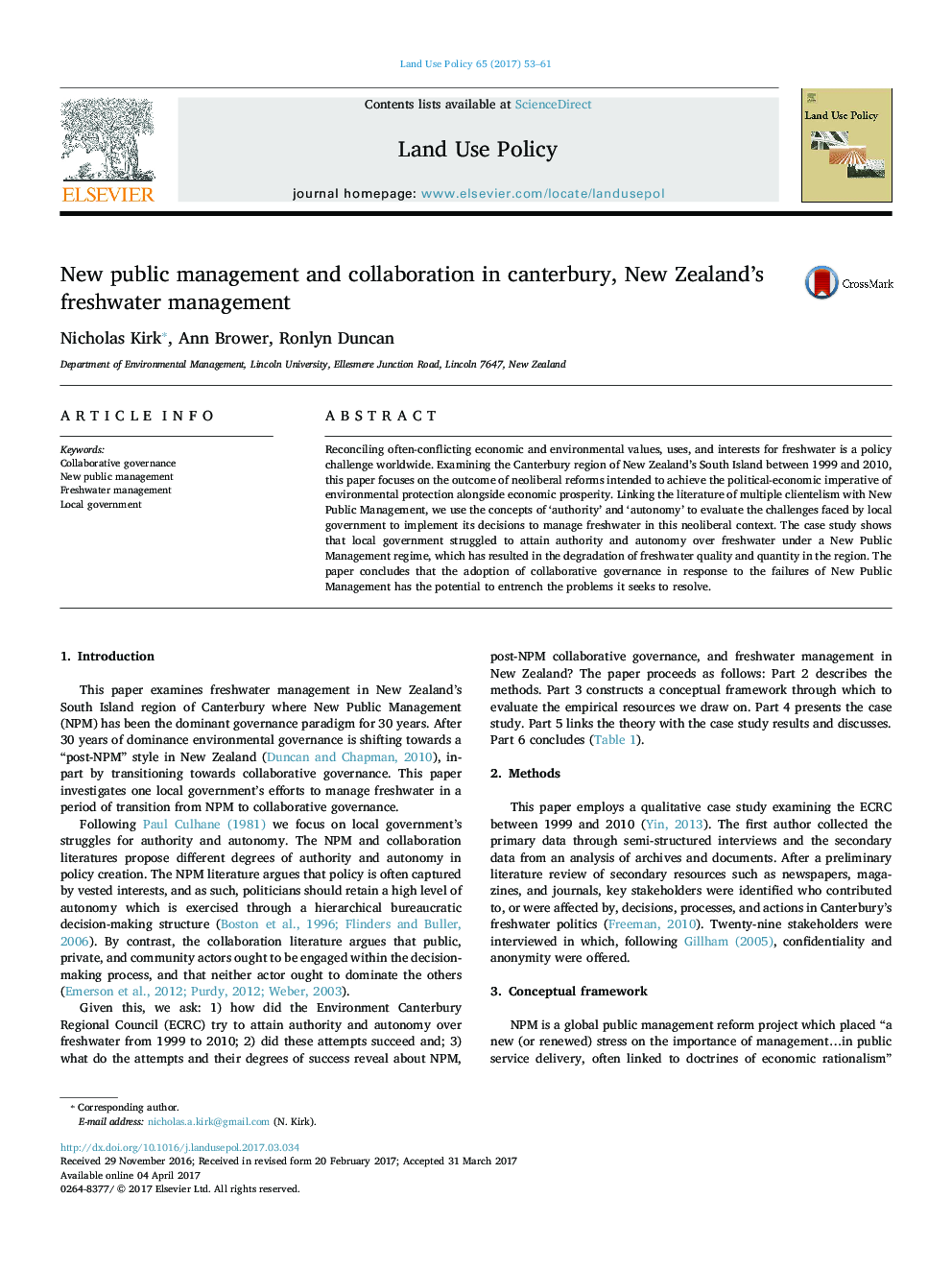| Article ID | Journal | Published Year | Pages | File Type |
|---|---|---|---|---|
| 6461120 | Land Use Policy | 2017 | 9 Pages |
â¢The ECRC struggled to exercise authority and autonomy under New Public Management.â¢The failure of New Public Management resulted in the enthusiastic embrace of collaboration.â¢Collaboration has not resolved the tension between economic development and environmental protection.â¢Collaboration is a substitute for the old New Public Management system, a way of doing business-as-usual.
Reconciling often-conflicting economic and environmental values, uses, and interests for freshwater is a policy challenge worldwide. Examining the Canterbury region of New Zealand's South Island between 1999 and 2010, this paper focuses on the outcome of neoliberal reforms intended to achieve the political-economic imperative of environmental protection alongside economic prosperity. Linking the literature of multiple clientelism with New Public Management, we use the concepts of 'authority' and 'autonomy' to evaluate the challenges faced by local government to implement its decisions to manage freshwater in this neoliberal context. The case study shows that local government struggled to attain authority and autonomy over freshwater under a New Public Management regime, which has resulted in the degradation of freshwater quality and quantity in the region. The paper concludes that the adoption of collaborative governance in response to the failures of New Public Management has the potential to entrench the problems it seeks to resolve.
